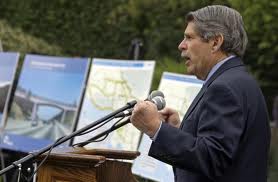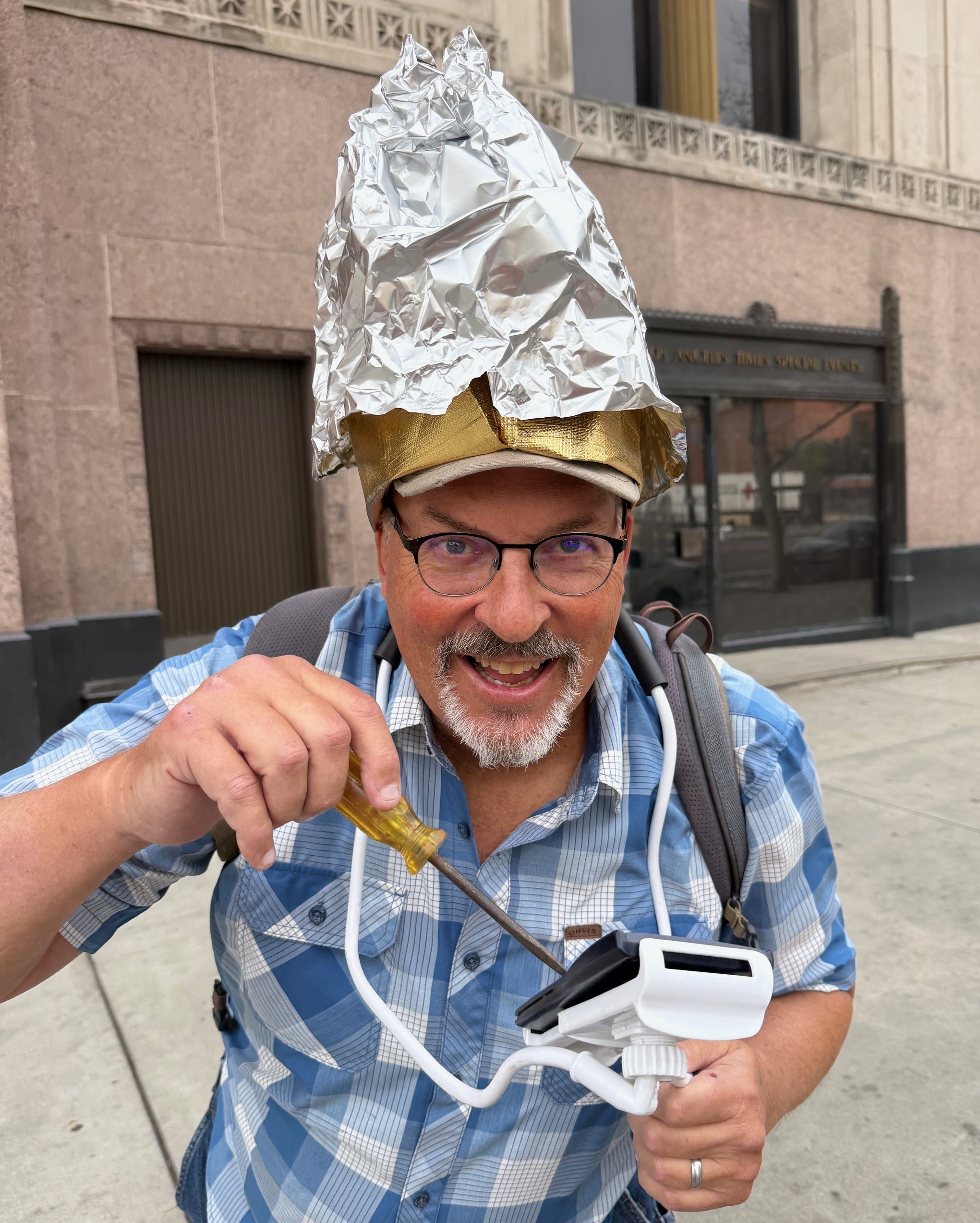(We just found out from Metro, via email and The Source, that the Regional Connector discussion is being moved until next month so "local concerns" can be addressed in the financial district. - DN)
It wouldn't be the Metro Board of Directors without some drama. Read the full agenda for tomorrow's meeting of the Board by clicking here.
It appeared that, despite some grumbling about the exclusion of a station at Fifth and Flower, that the Regional Connector debate was over. The Final Environmental Documents had completed public comment, the Little Tokyo community was mollified, and the billionaire with the napkin drawings was out of the picture.
But last week, a motion by Supervisor Zev Yaroslavsky presented at committee caused a stir amongst transit watchers. The motion overruled a staff recommendation to award another three-quarters of a million dollars for public outreach to the Robert Group, to complete outreach for the plan. Yaroslavsky wants to see some fiscal numbers on how past monies were spent before the Board awards a new contract.
The motion caused consternation from some Regional Connector supporters. At last Friday's mayoral forum, I was approached by a prominent Downtown resident who asked me, "Is the Regional Conenctor in trouble?" A second person at the same event wondered whether the Supervisor planned to delay Regional Connector in a scheme to speed up the Westside Subway.
Yaroslavsky claims that wasn't the intent, his motion is just a matter of making sure Metro is spending its consultant dollars well.
"The Regional Connector is an important project, and I want to see it happen," the Supervisor stated in a phone interview. "Three quarters of a million dollars is a lot of money and I just want to make sure we're spending it properly. The funding is being held over until next month and the contractor still has funds from us to cover continued outreach needs in that time."
Meanwhile, the last round of environmental documents are expected to be approved at tomorrow's Board Meeting. If all goes smoothly, final design (and the public outreach that goes with it) should commence this Spring.
Yaroslavsky is also at the center of another potential controversy with a motion requiring Metro to lock fare gates in the next "five to six" months. Backing the Supervisor's motion is a staff report on the impact of test-locking the gates in November and December of last year. The report can be read, here and also includes information about allocating staff, sheriffs and other resources to make the gate locking customer friendly.
There's a lot of things to say about the report and the option of locking all the fare gates, but one of the chief concerns is that the report seems to downplay the importance of solving the Inter-Agency Transfer dilemma that it is difficult for riders of multiple transit agencies to keep their costs low, unify their fare media (i.e. have a universal transit pass) and get where they need to go. This has been such an ongoing issue, that a separate motion by Los Angeles City Councilman Jose Huizar creates an inter-agency task force to examine just that issue.
The report finds that a statistically insignificant number of riders at Metro stations (17 of over 26,000 transactions) were "inter agency transfers." Considering that Metro didn't complete checks at transit stops and stations known for these typed of commutes, such as like Wilshire/Western (Santa Monica Rapid 7), 7th/Metro Center (Santa Monica Rapid 10) or Pershing Square (Torrance Bus) or any light rail station that has bus stops for buses from another agency; these numbers should be low.
As Metro considers ways to improve the TAP system and ways of making best use of the turnstiles, the Board needs to be armed with the best data available. Good data on how many people make regular transfers between Metro and other agencies is a good place to start. As Metro discusses the cost of locking up the fare gates in a new camera system and additional staff, they should also know what the cost would be in ripping the gates out of the ground and mailing them back where they came from.
(Full disclosure: the Robert Group has purchased advertising on Streetsblog for a handful of projects, including the Regional Connector.)







